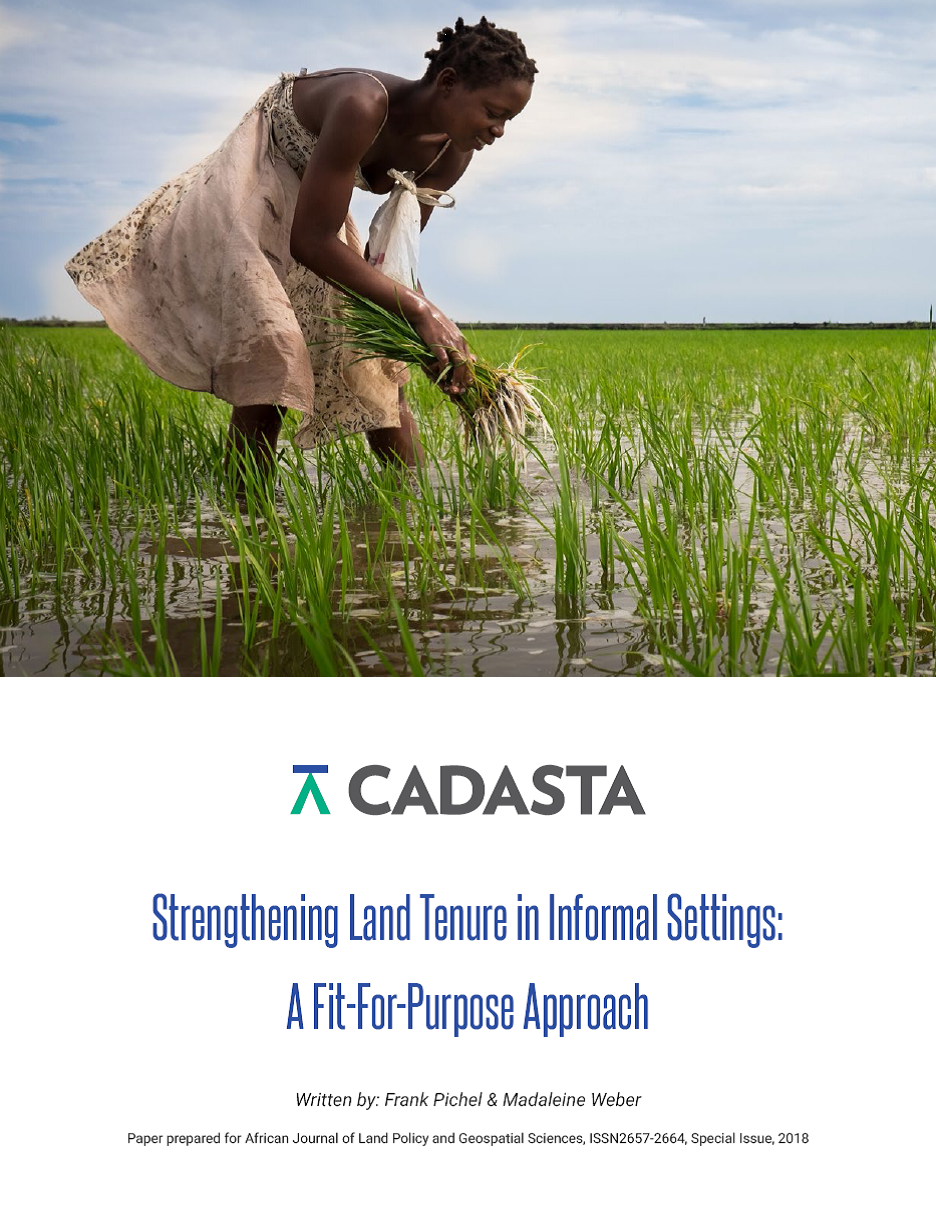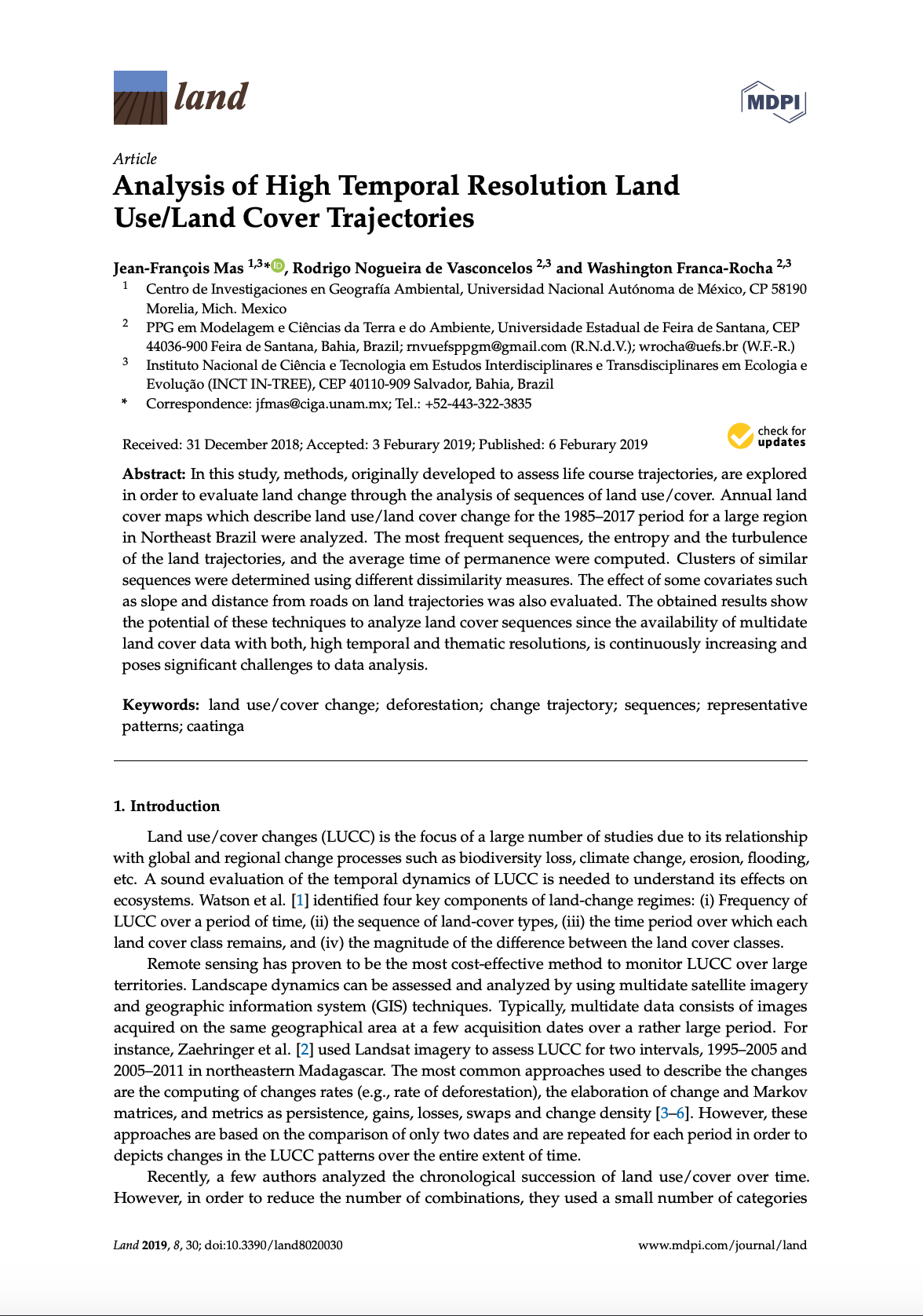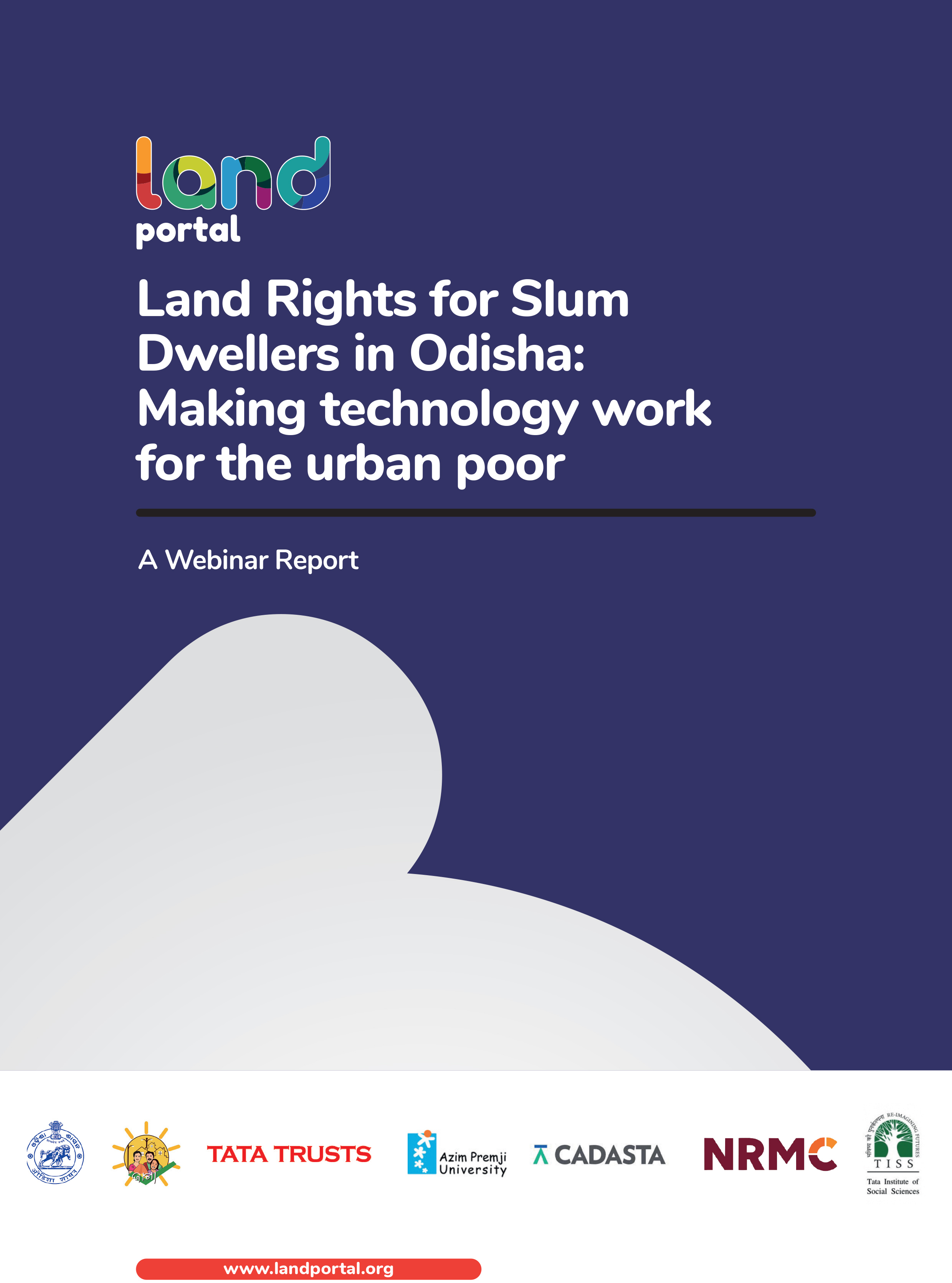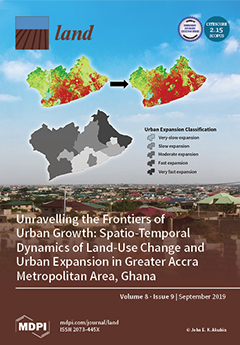Cartografía de coberturas del suelo mediante Sensores Remotos, de la ciudad de Resistencia, Argentina (2013)
Los Sensores Remotos se han convertido en los últimos tiempos en una herramienta importante para la planificación territorial, debido a la originalidad metodológica con la cual operan y el amplio espectro de observación de la superficie terrestre. El número de algoritmos disponibles en la literatura científica, permiten tratar individualmente muchas de las coberturas terrestres y caracterizarlas en base a su comportamiento espectral. En el presente trabajo se han aplicado dos métodos de clasificación de imágenes: árboles de decisión o reglas y clasificación no supervisada.










